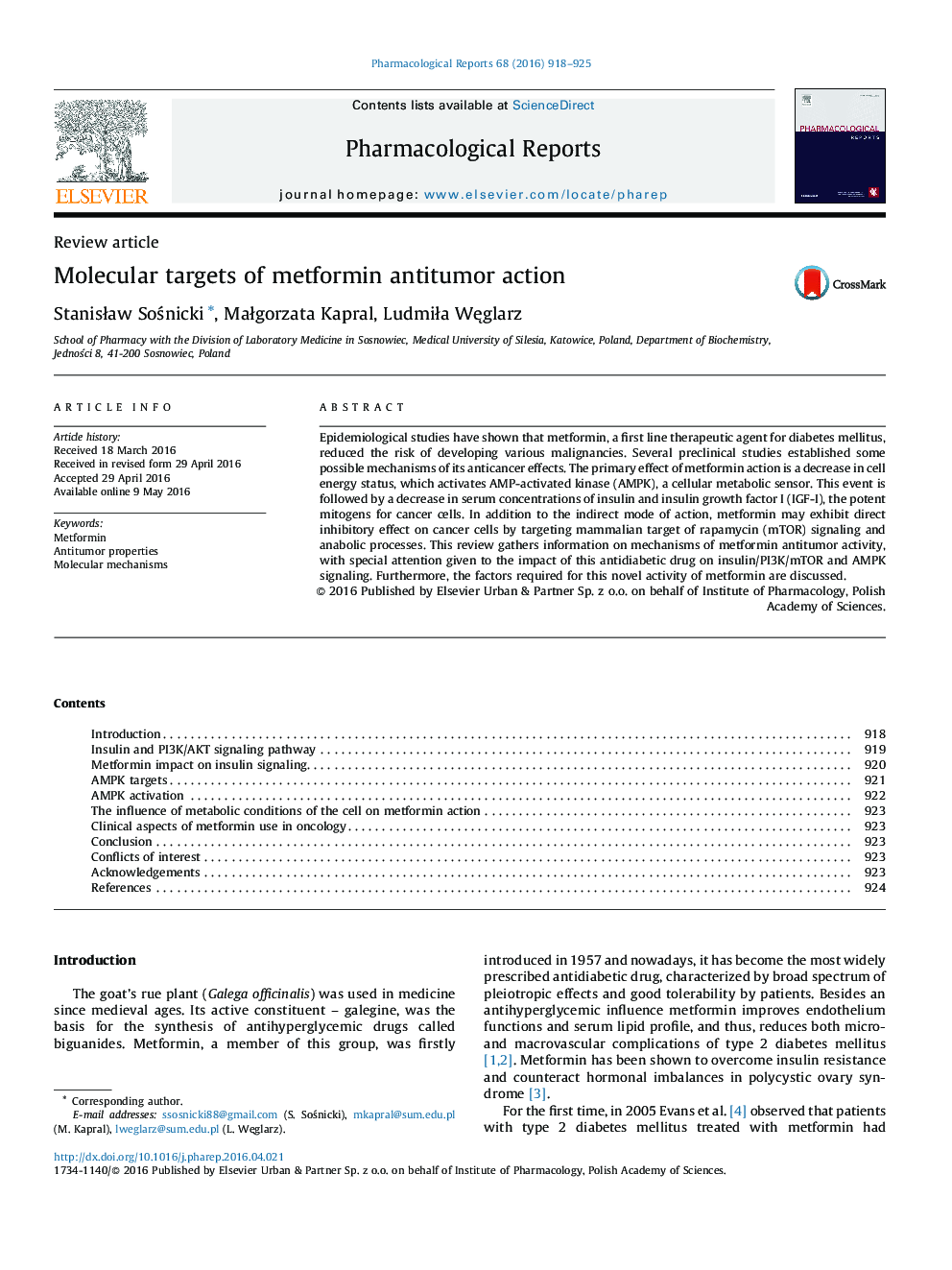| Article ID | Journal | Published Year | Pages | File Type |
|---|---|---|---|---|
| 2010678 | Pharmacological Reports | 2016 | 8 Pages |
Epidemiological studies have shown that metformin, a first line therapeutic agent for diabetes mellitus, reduced the risk of developing various malignancies. Several preclinical studies established some possible mechanisms of its anticancer effects. The primary effect of metformin action is a decrease in cell energy status, which activates AMP-activated kinase (AMPK), a cellular metabolic sensor. This event is followed by a decrease in serum concentrations of insulin and insulin growth factor I (IGF-I), the potent mitogens for cancer cells. In addition to the indirect mode of action, metformin may exhibit direct inhibitory effect on cancer cells by targeting mammalian target of rapamycin (mTOR) signaling and anabolic processes. This review gathers information on mechanisms of metformin antitumor activity, with special attention given to the impact of this antidiabetic drug on insulin/PI3K/mTOR and AMPK signaling. Furthermore, the factors required for this novel activity of metformin are discussed.
